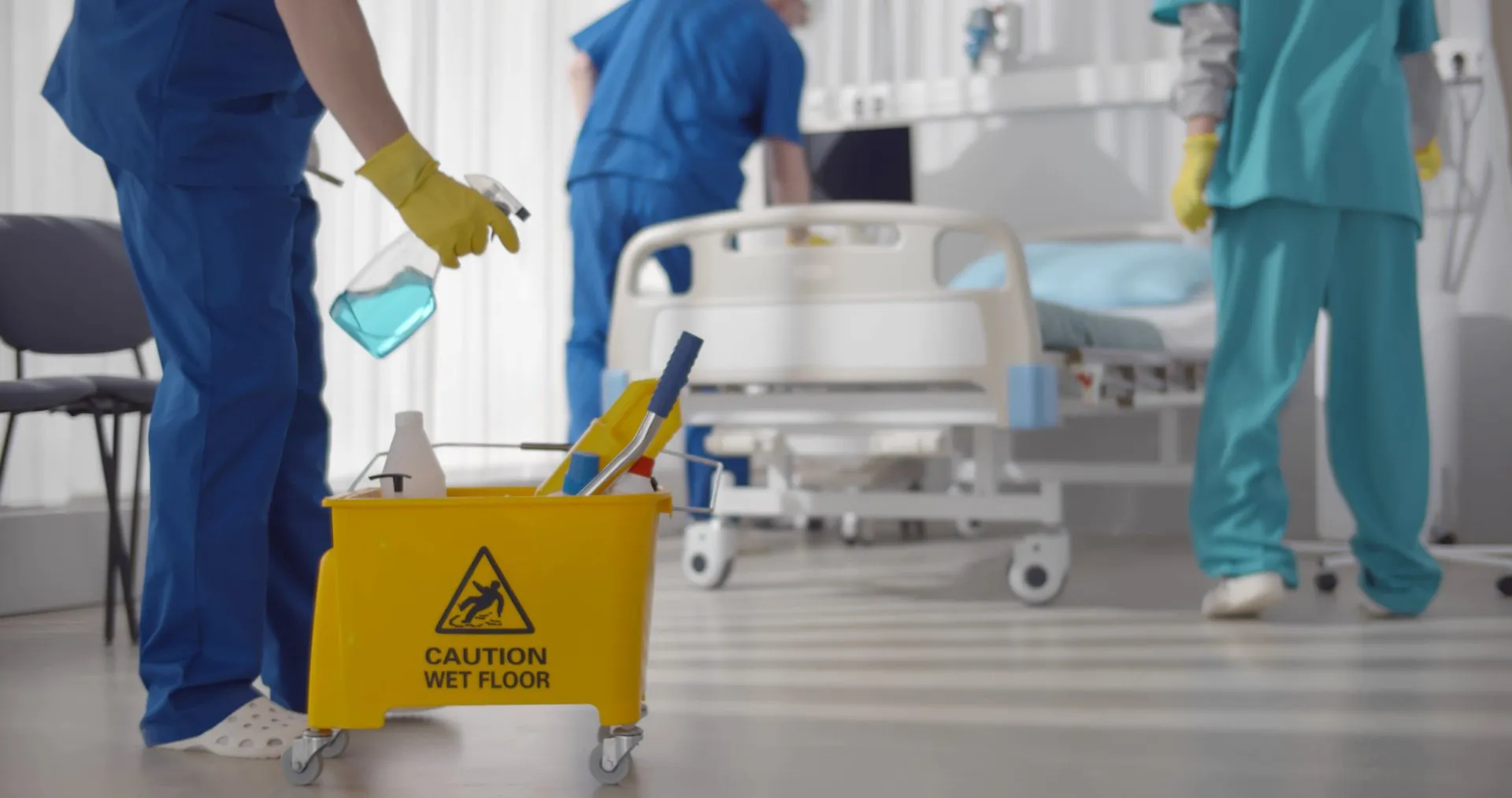
Even with social distancing and other precautions to prevent the spread of germs, the stakes are high in public places, especially with healthcare cleaning. The risks are particularly high in medical offices, urgent care centers, and dental offices where germs and bacteria abound. Proper cleaning will also prevent your janitorial staff from their exposed to bacteria and illnesses.
Things to Consider When Cleaning a Medical Facility
The healthcare cleaning guidelines for the methods of Medical Cleaning services in Cork, dental office cleaning, and urgent care cleaning can be found on the website for Occupational Health and Safety (OSHA). OSHA also provides the recommended medical facility cleaning standards and other tips.
Patients bring germs into medical and dental offices with them, which means that medical facilities can easily become a breeding ground for bacteria and illness. Such a high-risk environment means that cleaning and disinfecting for healthcare entails more than a general end-of-day wipe-down.
Cross-contamination of germs between areas should be of particular concern. Efficiency is also a high priority because many tasks must be completed in a timely manner.
After a thorough healthcare cleaning, your medical facility needs to have more than a clean appearance and fresh smell. Your role as a professional cleaning service is to ensure that the facilities you clean are also germ-free.
It’s crucial to allow your janitorial services team adequate time to do the best job of medical disinfection and sanitation. It’s also important to ensure that your professional cleaning team members have a medical facility checklist that includes all the proper tools and cleaning supplies and that they’re well-trained on how to clean medical facilities.
Medical Disinfection and Sanitation
Healthcare, hospital cleaning, and cleaning of dental offices require specific methods for disinfecting and sanitizing surfaces.
Healthcare cleaning companies should require all of their employees to wear disposable gloves when cleaning. Using soap or detergent and water, they should clean surfaces before disinfecting them. Scrubbing with soap will reduce germs and bacteria and disinfecting surfaces will kill germs.
They need to pay special attention to high-traffic areas and surfaces that people touch frequently such as:
- Doors
- Door frames
- Countertops
- Tables
- Light switches
- Cabinet handles
- Desks
- Phones
- Keyboards
The Environmental Protection Agency (EPA) lists the proper disinfectants for use in medical facilities. Always follow the instructions on the labels. Also, be sure to have workers wear protective gloves and ensure there is good ventilation when using disinfectants. Never mix chemical products!
Cleaners may also use alcohol solutions that have at least 70% alcohol or diluted household bleach solutions.
Medical Types of Facility
Professional cleaners should be familiar with the particular nuances of various types of medical offices.
For example, dental offices are typically cleaner at all times because of the nature of their work.
Medical offices have many ill people arriving all day, so cleaners need additional time for thorough cleaning. Cleaners also need to dispose of special bags that contain items that have come into contact with blood and bodily fluids. These areas require special training. In pediatrician’s offices pay attention to common touchpoints four feet and lower that children put their mouths on.
An oncologist's office requires thorough cleaning because many of their patients have weakened immune systems.
Why You Should Hire Professionals for Medical Cleaning
Cleaning professionals provide valuable support for medical professionals. Due to the need to protect vulnerable patients, cleaning workers need intensive, ongoing training. They need to know standard operating procedures and be trained on how to document their tasks.
Cleaning Procedures for Medical & Healthcare Facilities
These four tips will help you train your cleaners properly:
- Use a hospital-grade disinfectant that’s approved by the EPA to clean all areas of the bed headboard, frame, side rails, and mattress.
- Clean the TV remote, nurse call button, call cord, and other highly touched areas like drawer pulls, tabletops, inside drawers, phones, door handles, light switches, drapery pulls, and phones with the same disinfectant.
- In the bathroom, clean the sink, countertop, support bars, and shower fixtures. Clean the toilet last.
- Refrain from touching the outside of gloves when removing them. Wash hands with antimicrobial soap and then put on a new set of gloves.
Medical Cleaning in Times of COVID-19
Use a ULV machine (electrostatic disinfection) as appropriate to achieve a 360° touchless disinfection. There is less chance of kicking up dust and sending germs into the air.
Regular cleaning and sanitizing are crucial for the health and safety of patients and medical staff. Leave your medical cleaning needs to Excellent Clean Company where they have the proper tools and techniques to do a safe, thorough cleaning according to CDC guidelines.
Choose Safety-Minded Professional Cleaning Services in Cork
Throughout Cork City and surrounding areas, Excellent Clean Company has the safety of our clients in mind. Our house cleaning services are designed to be tough on germs, dirt, and grime, but safe for your family and gentle on your home’s surfaces. We use EPA-registered cleaning products for all of our Residential cleaning services, and for our Deep cleaning services, we use products that clean your surfaces and protect your home.
Whether you are looking for Commercial Cleaning Services in Cork or other Residential cleanings, Office cleaning services in Cork
Excellent Clean Company is committed to your well-being. We are also thoroughly trained in the proper products and procedures to offer effective, safe cleanings, and are insured and bonded to protect your best interests. Request a quote today!

